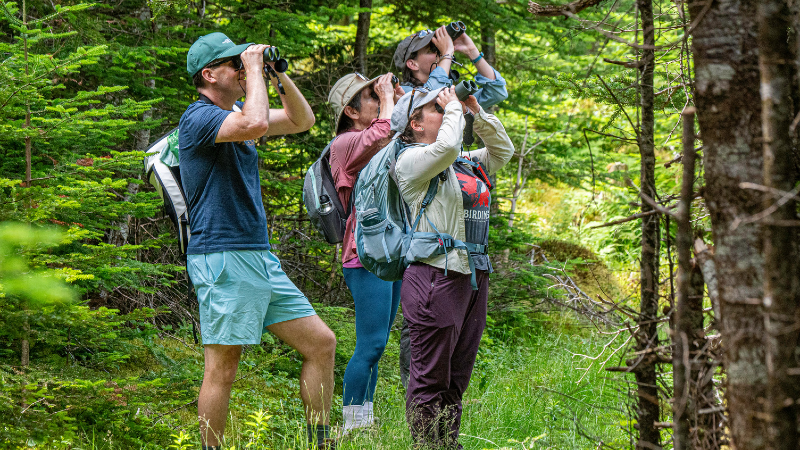
Ready, set, snap!
The Nature Conservancy of Canada (NCC) is calling on people across Newfoundland and Labrador and across the country to get outside from Aug. 1-5 to document the nature around them, in the name of science. The non-profit’s fourth annual Big Backyard BioBlitz aims to create a snapshot of nature in Canada, by encouraging people of all ages to observe and document the nature around them.
People can participate solo or with a group, and as often as they want, over the first weekend in August. The Big Backyard BioBlitz is a family-friendly activity that’s engaging for all ages, no matter a person’s level of knowledge about nature. Every observation can help conservation groups and scientists understand the state of local biodiversity, track at-risk species and even tackle invasive ones.

People can use their smartphones, tablets or digital cameras to snap photos or record audio of birds, insects, plants and other species wherever they happen to be, and then upload them to the event’s online database
By documenting the wild species in their neighbourhoods, including plants, birds, insects, mammals, reptiles, amphibians, lichen and fungi, participants help scientists map species and monitor changes over time. Big Backyard BioBlitz participants have recorded over 147,000 observations over the last four events, documenting over 7,700 species, including many that are at-risk or even endangered. In the face of climate change and biodiversity loss, people’s observations can help inform solutions.
During the 2023 Nature Conservancy of Canada event, participants uploaded over 600 wildlife and plant observations, including butterflies, woodland caribou, northern goshawk and other birds, yellow-banded bumblebee, and invasive species such as St. John’s Wort, Sea Buckthorn and Black knapweed.
“The Big Backyard BioBlitz is a great way to connect with the outdoors, while contributing to a national community science project,” says Mark Frank with the Nature Conservancy of Canada in the Atlantic Provinces. “From invasive to endangered species, everyone’s observations help protect the nature we love.”






